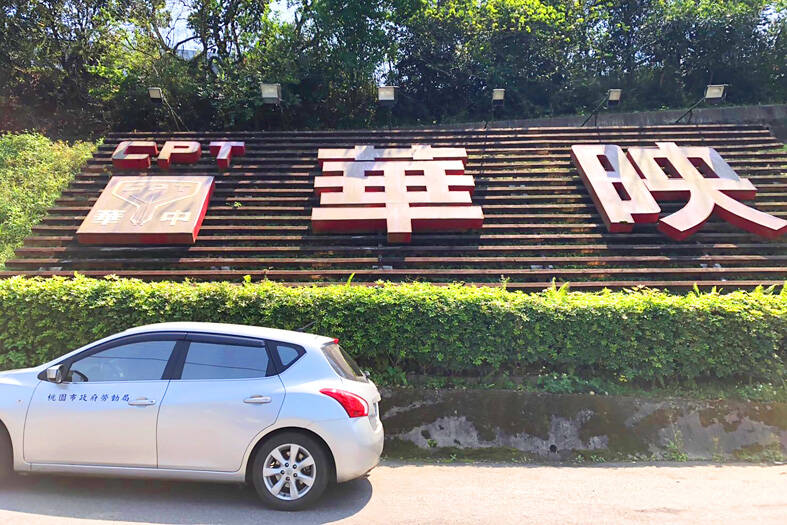The Taoyuan District Court on Monday declared flat panel maker Chunghwa Picture Tubes Ltd (CPT, 中華映管) bankrupt after a review of its bankruptcy application filed in September 2019.
In an announcement posted to the Taiwan Stock Exchange, home appliance supplier Tatung Co (大同), CPT’s largest shareholder with a 39.67 percent stake, said the court determined that based on CPT’s total assets, it was unlikely to repay all of its debt, and therefore ruled that the debt-ridden company was bankrupt.
CPT had total liabilities of NT$41.83 billion (US$1.37 billion) as of the end of last year, far exceeding its assets, consisting mostly of property and production equipment, Tatung said.

Photo: CNA
The company did not provide an estimate of the value of those assets.
Local media reported that a court-initiated auction of CPT’s plants and worker dormitories in Taoyuan’s Yangmei District (楊梅), which had a floor price of NT$6.3 billion, failed to attract a buyer.
Tatung said many of its creditors had sought a court order to carry out a compulsory enforcement requiring CPT to repay its debt, which made it impossible for CPT to continue its operations and prompted it to file for bankruptcy under the Company Act (公司法).
Although Tatung did not specify when its creditors pushed the issue, it was presumably in 2019 or earlier because CPT filed for bankruptcy that year and announced on Aug. 29, 2019, that it was laying off all of its 2,100 employees within 60 days.
Following the bankruptcy ruling, the court appointed accountant Ma Kuo-chu (馬國柱) and two lawyers — Liu Hui-chun (劉慧君) and Yang Hsaio-pang (楊曉邦) — to manage CPT’s bankruptcy process, Tatung said.
Tatung said a creditor meeting has been scheduled for Oct. 28 to deal with CPT’s debt repayment issues, and its creditors have been asked to file for loan repayments from Monday next week through Oct. 21.
CPT, a supplier of small and medium-sized flat panels, fell on hard times because of plummeting prices amid a major supply glut, putting tremendous pressure on its bottom line.
The flat-panel maker also booked NT$7.26 billion in losses resulting from its investment in Fuzhou-based CPT Technology (Group) Co (華映科技), only adding to its financial distress.
It was delisted from the Taiwan Stock Exchange on May 13, 2019, after its net worth dipped to negative territory.
Founded in 1971, CPT was once one of the nation’s leading flat-panel makers.
It launched an initial public offering on the Taiwan Stock Exchange on Sept. 17, 2001.

Mercuries Life Insurance Co (三商美邦人壽) shares surged to a seven-month high this week after local media reported that E.Sun Financial Holding Co (玉山金控) had outbid CTBC Financial Holding Co (中信金控) in the financially strained insurer’s ongoing sale process. Shares of the mid-sized life insurer climbed 5.8 percent this week to NT$6.72, extending a nearly 18 percent rally over the past month, as investors bet on the likelihood of an impending takeover. The final round of bidding closed on Thursday, marking a critical step in the 32-year-old insurer’s search for a buyer after years of struggling to meet capital adequacy requirements. Local media reports

TECHNOLOGICAL RIVALRY: The artificial intelligence chip competition among multiple players would likely intensify over the next two years, a Quanta official said Quanta Computer Inc (廣達), which makes servers and laptops on a contract basis, yesterday said its shipments of artificial intelligence (AI) servers powered by Nvidia Corp’s GB300 chips have increased steadily since last month, should surpass those of the GB200 models this quarter. The production of GB300 servers has gone much more smoothly than that of the GB200, with shipments projected to increase sharply next month, Quanta executive vice president Mike Yang (楊麒令) said on the sidelines of a technology forum in Taipei. While orders for GB200 servers gradually decrease, the production transition between the two server models has been

US sports leagues rushed to get in on the multi-billion US dollar bonanza of legalized betting, but the arrest of an National Basketball Association (NBA) coach and player in two sprawling US federal investigations show the potential cost of partnering with the gambling industry. Portland Trail Blazers coach Chauncey Billups, a former Detroit Pistons star and an NBA Hall of Famer, was arrested for his alleged role in rigged illegal poker games that prosecutors say were tied to Mafia crime families. Miami Heat guard Terry Rozier was charged with manipulating his play for the benefit of bettors and former NBA player and

BETTER THAN EXPECTED: The firm’s Q3 results exceeded its projections, based on ‘the underlying strength of our core markets,’ chief financial officer Dave Zinsner said Intel Corp returned to profitability and gave an upbeat revenue forecast after PC demand grew, suggesting that it is making progress on a long and challenging comeback attempt. In the third quarter, revenue rose 3 percent to US$13.7 billion. The Santa Clara, California-based company posted its first quarterly net income since the end of 2023, with earnings per share of US$0.23, excluding some items. Analysts had estimated sales of US$13.2 billion and earnings per share of US$0.01 on average, according to data compiled by Bloomberg. Fourth-quarter sales would be roughly US$13.3 billion, the company said in a statement on Thursday. Intel shares gained about